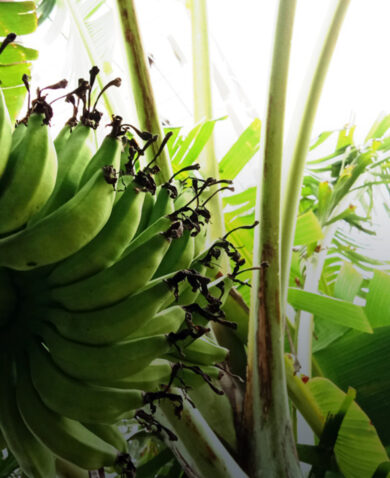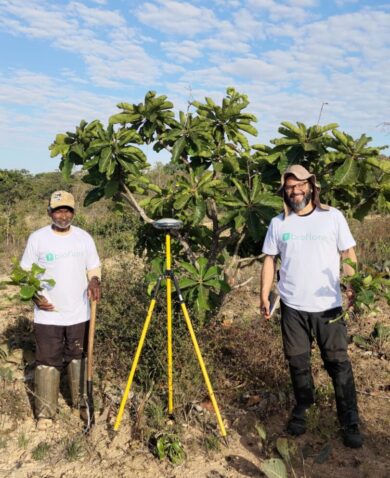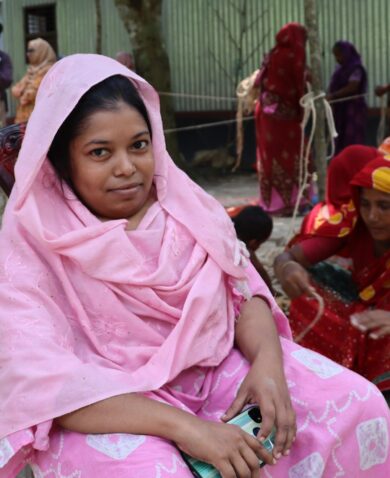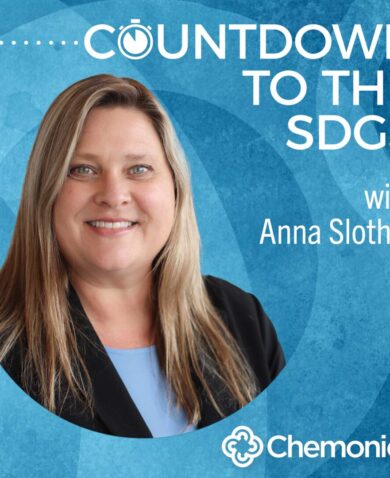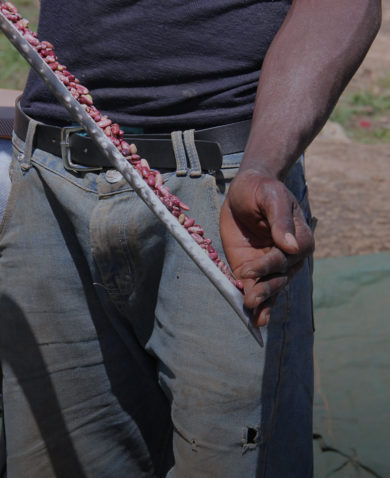
Thriving and Learning Amidst Adversity in Ukraine
August 11, 2023 | 5 Minute ReadOne of our projects in Ukraine is leveraging learning to adapt to a rapidly changing environment, demonstrating the possibility of harnessing knowledge sharing and conflict sensitivity analysis to achieve project results even during war.
In fragile and conflict-affected regions, development projects encounter unique difficulties that require innovative solutions. The USAID Agriculture Growing Rural Opportunities (AGRO) project, which Chemonics began implementing in 2019, was designed to accelerate the economic development of rural Ukrainian communities with the greatest need through a better governed agricultural sector that encourages more productive, modern, and profitable micro-, small-, and medium-sized agricultural enterprises. Russia’s unprovoked invasion of Ukraine in February 2022 tremendously changed the project’s working environment, expectations, and operations. The project had to pivot and adapt to remain operational within the changing dynamics of the country while also integrating an expanded scope and new objectives based on the current operating context. Through knowledge sharing and conflict sensitivity analysis, the AGRO team is overcoming unexpected impediments to organizational and development outcomes in Ukraine.
Bridging Gaps and Enhancing Impact through Knowledge Sharing
AGRO systematized opportunities to gain and exchange knowledge through a two-pronged approach, tackling both internal and external knowledge sharing regarding challenges, needs, approaches, results, and adaptations.
Strengthening the Internal Learning Culture
The AGRO team intentionally focused on building an internal learning culture to improve efficiency, innovation, and adaptability, which leads to successful outcomes. Here are some of the ways the AGRO project leveraged internal learning to thrive amidst the invasion and ongoing war.
Firstly, AGRO employs integrated reporting and interdepartmental coordination to enhance internal learning. At the start of the war, AGRO began monitoring trends and generating situational reports to share context-relevant information within the team and with USAID/Ukraine. These briefings have ensured timely monitoring of interventions and that all team members have access to the same information. AGRO’s collaborating, learning, and adapting (CLA) team, which is responsible for cross-cutting activities such as monitoring, evaluation, and leaning (MEL), communications, and gender equality and social inclusion (GESI), prepares daily bulletins based on inputs from the technical teams and important updates from the media. These daily reports facilitate information sharing on challenges and operational results, while also fostering cross-team interactions and collaborative planning.
AGRO systematically captures and uses project learning to inform decision making. After each major event, technical teams organize After-Action Reviews (AAR) to discuss successes and challenges within the team and with local partners. Quarterly Pause and Reflect (P&R) sessions enable the team to summarize and discuss lessons learned from that quarter and turn those into an approved action plan. This approach ensures that learning on the project is being utilized to inform decisions and inspires a stronger learning culture within the team by showing team members that their insights and experiences do inform decisions and changes.
Adapting External Knowledge Sharing Strategies
The ongoing war makes it difficult to conduct field visits. To continue monitoring, evaluating, and learning about project activities so the team can make appropriate adjustments, AGRO relies on robust formal and informal community monitors – a network built with project partners and local community members in 24 oblasts (regions) across Ukraine – for information. Capitalizing on these networks of information has enabled the team to adapt to a difficult and ever-changing environment. AGRO also shares its market research outcomes with local partners to help them plan their activities as it relates to war impact and market updates in their respective region.
Keeping constant feedback loops with market actors helps the team adjust and adapt together with their partners on the ground. According to AGRO’s communications manager, it took them about a month to onboard 8,221 farmers to distribute fertilizers and crop seeds this past spring. At the beginning, the project “received around 50 emails per day with questions and feedback”. It was a challenge to respond to them all, but it helped them better understand farmers’ limitations as well as the project’s bottlenecks in communications and deliveries. Based on this feedback, AGRO and Cooperative Zernovyi, its sub-awardee partner responsible for the project, organized several AAR meetings and were able to onboard over 11,000 new farmers within just two weeks of the next similar project.

Strategically Integrating Conflict Sensitivity Analysis to Inform Learning
In fragile and conflict-affected settings, adopting conflict sensitivity as a guiding principle is essential to clear the path to collaborative learning for the successful implementation of program activities. According to the United States Institute of Peace, conflict sensitivity aims to understand the impact of interventions and optimize the positive effects on conflict dynamics in a particular context.
Conflict sensitivity analysis is a critical complement to AGRO’s knowledge sharing efforts. Together with the Vikāra Institute in Ukraine, AGRO developed a methodology to understand how the agricultural market system is adapting in wartime, the Emergency Market Systems Mapping and Analyses (EMSMA). Conflict sensitivity analysis and the EMSMA, which is updated quarterly, have strengthened the project’s ability to learn and adapt in three primary ways:
- Recognizing Market Dynamics: Through systematic situational reporting and quarterly updates to their EMSMA, AGRO analyzes how their activities are affected by emerging trends in the market in response to the war. This informal conflict sensitivity analysis enables the Activity to understand prevalent power structures and to navigate the complex market system landscape. Through this, AGRO has recognized market imbalances, engaged with relevant stakeholders, and learned new ways of tackling issues which support market resilience, inclusiveness, and competitiveness and make its own activities more inclusive, transparent, and accountable.
- Addressing Livelihoods and Food Insecurity: Through the EMSMA, the team has gained a better understanding of the current market system and how it adapts to working in wartime. The EMSMA outlines safer and unsafe zones and ports that are still operational and those that are not. According to AGRO’s CLA Advisor, “this analysis has helped us differentiate our approaches to supporting farmers and local agri-related businesses in more safe and less safe zones. To provide a few examples, we were able to: relocate some dairy farms and processing enterprises from combat zones and link them with new markets and suppliers in safer places; focus inputs distribution efforts in newly liberated regions and the ones that host many relocated people; understand bottlenecks in marketing agriproducts and support businesses in establishing better connections with traders; and estimate and prioritize needs in grain storage and processing capacities, finance, human resources, equipment, etc.”
- Future Problem Identification: In Ukraine, the war’s legacy may have lasting effects on social cohesion and community dynamics. Through the EMSMA, AGRO is proactively identifying potential future challenges such as damaged ports hindering food transportation and the market impacts of renewed tensions or further population displacement. By integrating conflict-sensitive approaches into their planning and programming, the project is learning new ways of contributing to sustainable development and resilience-building, thus fostering stability and positive change over time.
Future Implications
In Ukraine, the AGRO project has harnessed the power of knowledge sharing within their team and with partners to overcome these challenges effectively. The AGRO team’s experience provides a clear example of how prioritizing team learning, building strong relationships with local partners, and integrating conflict sensitivity analysis can support positive development outcomes, even in armed conflict settings.
Banner image caption: A flourishing sunflower field. To foster grain and oilseeds production and enhance national and global food security in time of war, USAID AGRO distributed seeds and fertilizers to 8,221 farmers in spring 2023. AGRO expects to support 12,000 farmers in fall 2023 and 7,000 farmers in spring 2024. Image supplied by USAID AGRO.
Posts on the blog represent the views of the authors and do not necessarily represent the views of Chemonics.









